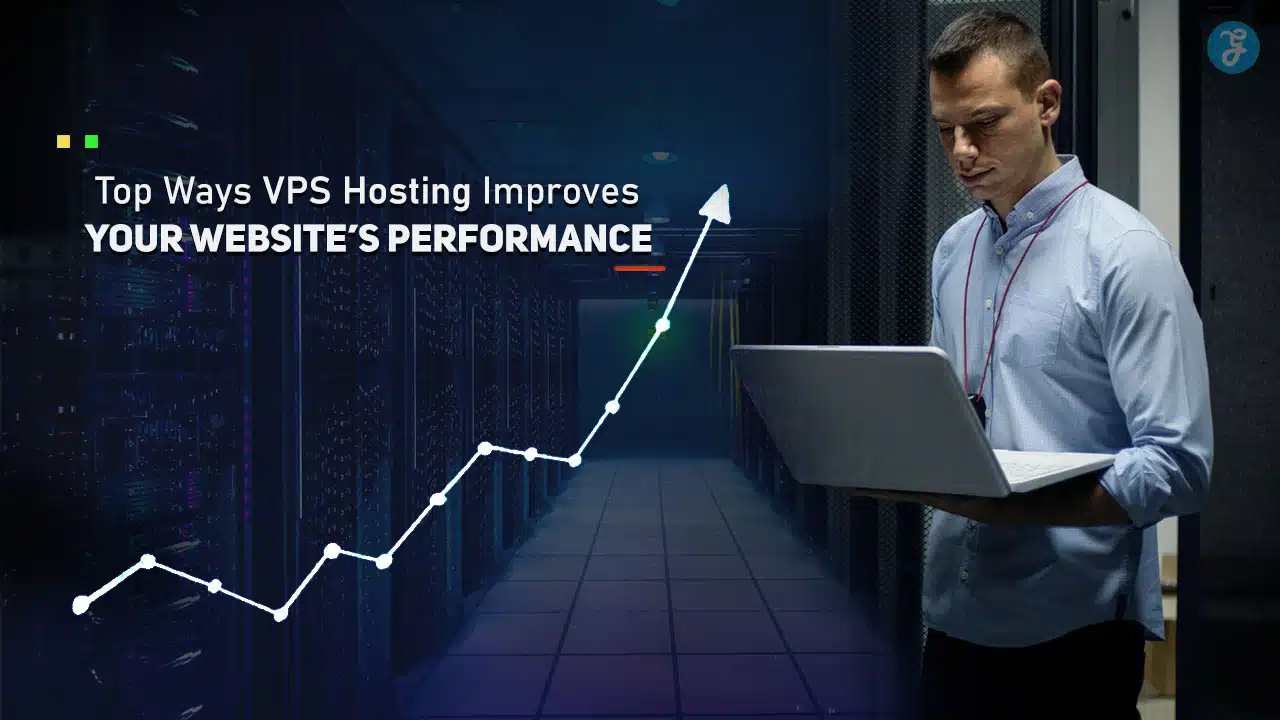In today’s fast-paced digital landscape, a slow or unreliable website can cost you visitors, customers, and revenue. Whether you’re running a blog, an e-commerce store, or a business website, performance is key to retaining users and ensuring long-term growth.
One of the most effective solutions for boosting your website’s performance is VPS hosting (Virtual Private Server hosting).
VPS hosting provides a middle ground between shared hosting and dedicated servers. It gives you access to dedicated resources within a shared environment, offering a balance of affordability, flexibility, and performance.
If you’re wondering whether VPS hosting is worth the investment, this article will explain five key ways VPS hosting improves your website’s performance and why it might be the right choice for your needs.
1. Improved Speed and Loading Times
Website speed is crucial for user experience, SEO rankings, and overall success. Studies show that even a one-second delay in page load time can result in reduced conversions and increased bounce rates. Shared hosting often struggles to deliver consistent speed due to resource limitations, making VPS hosting a better alternative.
How VPS Hosting Improves Speed:
- Dedicated Resources: Unlike shared hosting, VPS provides you with dedicated CPU, RAM, and storage, ensuring optimal performance regardless of traffic on other websites.
- Faster Data Access: VPS servers often use SSD (Solid-State Drive) storage, which is significantly faster than traditional HDDs. This speeds up data retrieval and reduces load times.
- Customization Options: You can configure your VPS server to optimize speed, such as installing caching tools or tweaking server settings.
Real-Life Impact:
For an e-commerce store, faster load times mean higher customer retention and increased sales. A VPS-hosted website can handle product images, payment processing, and user requests more efficiently, resulting in a smoother shopping experience.
Pro Tip: Use performance-monitoring tools like Google PageSpeed Insights to measure and optimize your website’s loading speed on VPS hosting.
2. Enhanced Reliability and Uptime
Downtime can damage your credibility and lead to lost revenue, especially for businesses that rely heavily on online operations. While shared hosting environments are prone to crashes during traffic spikes, VPS hosting ensures better reliability.
How VPS Hosting Enhances Reliability:
- Isolated Environment: Your VPS operates independently of other websites on the server, meaning issues affecting others won’t impact your site.
- Guaranteed Resources: Dedicated RAM and CPU mean your website has the resources it needs to stay operational, even during peak traffic.
- Load Balancing: VPS hosting providers often include load balancing, which distributes incoming traffic efficiently to prevent server overload.
Real-Life Impact:
A blog experiencing a viral post can rely on VPS hosting to handle sudden traffic surges without crashing, ensuring readers have uninterrupted access.
Pro Tip: Look for VPS hosting providers with a guaranteed uptime of 99.9% or higher to minimize the risk of downtime.
3. Scalability for Growing Websites
As your website grows, so do its resource requirements. Shared hosting plans are often rigid, leaving little room for scalability. VPS hosting, on the other hand, offers unmatched flexibility to adapt to your evolving needs.
How VPS Hosting Supports Scalability:
- Dynamic Resource Allocation: You can easily upgrade or downgrade resources like CPU, RAM, and storage based on your website’s traffic and performance demands.
- No Migration Hassles: Unlike shared hosting, where upgrading often requires moving to a new server, VPS hosting lets you scale within the same environment.
- Handles Traffic Spikes: Whether you’re running a seasonal sale or launching a new product, VPS hosting can handle temporary traffic increases without compromising performance.
Real-Life Impact:
An online course platform experiencing enrollment surges during promotional periods can scale its VPS resources to accommodate new users seamlessly.
Pro Tip: Choose a VPS hosting plan that allows for easy scalability without downtime or hidden fees.
4. Advanced Security Features
Cybersecurity threats are a growing concern for all website owners. Shared hosting environments are particularly vulnerable due to their lack of isolation and resource sharing. VPS hosting offers enhanced security measures to protect your website and its users.
How VPS Hosting Improves Security:
- Isolated Environment: Each VPS operates as a separate virtual server, reducing the risk of cross-site contamination or data breaches.
- Customizable Firewalls: You can configure firewalls and security settings to meet your specific needs.
- Regular Backups: Many VPS hosting providers include automated backups, ensuring your data is safe in case of an attack or technical failure.
- SSL Certificates: VPS plans often include free or affordable SSL certificates to encrypt data and secure user information.
Real-Life Impact:
An e-commerce store processing sensitive customer information, such as credit card details, benefits from the robust security of VPS hosting, ensuring user trust and compliance with regulations.
Pro Tip: Regularly update server software and plugins to minimize vulnerabilities on your VPS-hosted website.
5. Customization and Control
One of the standout features of VPS hosting is the level of customization and control it offers. Unlike shared hosting, which limits your ability to configure server settings, VPS hosting gives you full control over your environment.
How VPS Hosting Enables Customization:
- Root Access: With root access, you can install custom software, configure applications, and manage server settings to optimize performance.
- Choice of Operating Systems: VPS hosting lets you choose the operating system (Linux, Windows, etc.) that best suits your technical requirements.
- Support for Advanced Applications: Run resource-intensive applications or integrate third-party tools without restrictions.
Real-Life Impact:
A digital marketing agency managing multiple client websites can customize its VPS server to install specialized tools, ensuring efficient workflows and superior client results.
Pro Tip: While VPS hosting offers flexibility, it’s essential to have technical expertise or access to managed services for seamless server management.
Conclusion
VPS hosting is a game-changer for websites seeking better performance, reliability, and scalability. Unlike shared hosting, which limits resources and leaves your site vulnerable to external issues, VPS hosting gives you dedicated resources, enhanced security, and the flexibility to adapt as your business grows.
Whether you’re an e-commerce entrepreneur, a blogger, or a small business owner in need of robust online presence, the five ways VPS hosting improves your website’s performance—speed, reliability, scalability, security, and customization—make it a worthwhile investment.
By choosing the right VPS hosting provider and implementing best practices, you can elevate your website’s performance, deliver a superior user experience, and set the stage for long-term success. The time to upgrade is now!








































